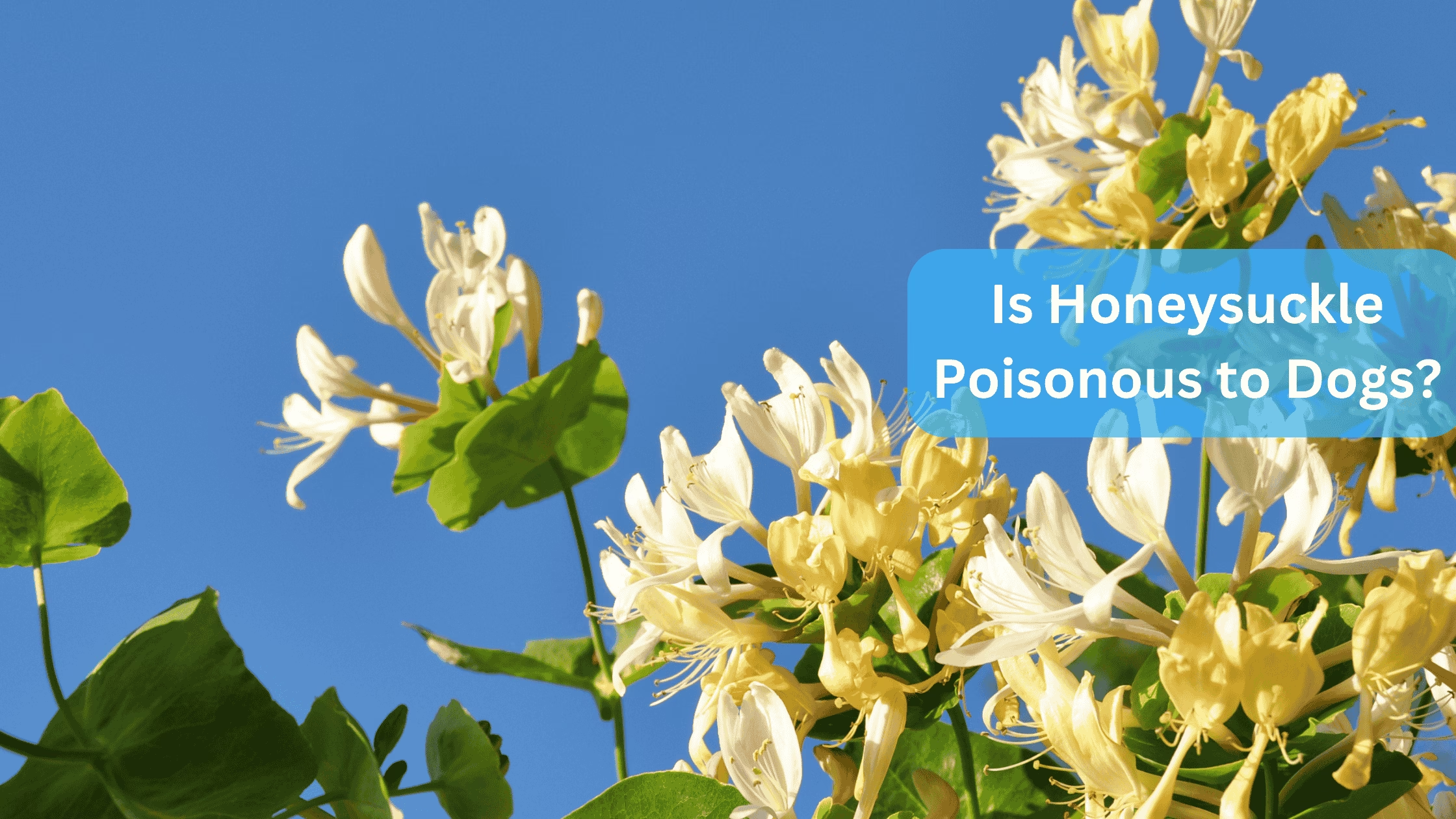Is Honeysuckle Poisonous to Dogs? Honeysuckle is a beautiful and fragrant plant that many gardeners love for its vibrant flowers and sweet scent. However, as with many plants, it’s crucial for dog owners to understand the potential risks associated with honeysuckle. This article will explore whether honeysuckle is poisonous to dogs, what symptoms to watch for if ingestion occurs, and how to keep your furry friends safe.
What Happens If My Dog Eats Honeysuckle?
If your dog decides to nibble on honeysuckle, the effects can vary depending on the amount consumed and the specific variety of honeysuckle. While not all honeysuckles are highly toxic, ingestion can lead to gastrointestinal upset.
Common Symptoms of Honeysuckle Ingestion:
- Vomiting
- Diarrhea
- Excessive drooling
- Abdominal discomfort or pain
- Lethargy
In severe cases, particularly with more toxic varieties, symptoms can escalate to include irregular heartbeat or neurological issues. If you suspect your dog has eaten honeysuckle, it’s essential to monitor them closely for any signs of distress.
How Poisonous Is Honeysuckle?
The toxicity of honeysuckle varies by species. Some varieties contain compounds known as cyanogenic glycosides, which can release cyanide in the body and lead to serious health issues. For example:
Coral Honeysuckle (Lonicera sempervirens): Low toxicity; while it may cause mild symptoms like vomiting or diarrhea, severe reactions are rare.
Amur Honeysuckle (Lonicera maackii): Highly toxic and can cause severe symptoms like vomiting and seizures.
Gold Flame Honeysuckle (Lonicera x heckrottii): Generally considered non-toxic but may still cause mild gastrointestinal upset if ingested.
Is Honeysuckle Toxic to Dogs in the UK?
In the UK, common varieties such as Lonicera periclymenum (common honeysuckle) and Lonicera japonica (Japanese honeysuckle) can pose risks.
Both types can lead to gastrointestinal upset if ingested by dogs. Therefore, UK dog owners should remain vigilant around these plants.
Is Honeysuckle Poisonous to Dogs and Humans?
Yes, honeysuckle can be toxic to both dogs and humans. For humans, consuming certain parts of the plant may cause mild gastrointestinal discomfort.
However, dogs are more sensitive to the toxins present in honeysuckle. Symptoms in dogs can range from mild digestive upset to more severe reactions depending on the amount consumed.
Are Honeysuckles Poisonous to Humans?
Honeysuckles are not typically poisonous to humans when consumed in moderation; however, some parts of the plant can cause mild stomach upset if eaten in large quantities. The flowers are often used for their nectar in teas or as garnishes but should be approached with caution.
Is Honeysuckle Safe to Eat
While some honeysuckles are edible—such as the flowers from certain species—it’s crucial to identify which ones are safe. Always verify the specific type of honeysuckle before consuming any part of it. For dogs, however, it’s best to avoid any honeysuckle altogether due to their sensitivity.
Is Honeysuckle Toxic to Horses?
Interestingly, honeysuckle toxicity extends beyond dogs; it can also affect horses. While horses may not show severe symptoms like dogs do, they can experience gastrointestinal upset if they consume significant amounts of honeysuckle.
Bush Honeysuckle and Dogs
Bush honeysuckle (Lonicera maackii) is particularly concerning due to its higher toxicity levels compared to other varieties.
Symptoms of ingestion include vomiting, diarrhea, and lethargy. If you have bush honeysuckle in your yard, it’s best to keep your dog away from it entirely.
Coral Honeysuckle
Coral honeysuckle (Lonicera sempervirens) is often regarded as having low toxicity compared to other varieties.
Mild symptoms like vomiting may occur if ingested; however, severe reactions are rare. It’s wise for pet owners to monitor their dogs around this plant but not panic if a small amount is consumed.
Which honeysuckle is not poisonous to dogs?
Non-Toxic Honeysuckle Varieties
While many honeysuckles can be harmful, some varieties are considered non-toxic but may still cause gastrointestinal upset if consumed in large amounts:
1. Gold Flame Honeysuckle (Lonicera x heckrottii):
Description: A vibrant addition with beautiful blooms.
Effects: Generally safe for dogs but may cause mild digestive issues if overconsumed.
2. Coral Honeysuckle (Lonicera sempervirens):
Description: Known for its tubular flowers that attract hummingbirds.
Effects: Low toxicity; mild symptoms may occur with ingestion.
3. American Honeysuckle (Lonicera canadensis):
Description: Features delicate flowers and edible berries.
Effects: Non-toxic but can cause mild gastrointestinal discomfort if eaten excessively.
What to Do If My Dog Eats Honeysuckle
If you suspect your dog has eaten honeysuckle:
- Remove any remaining plant material from their mouth.
- Offer water to help rinse out any leftover bits.
- Contact your veterinarian immediately for guidance.
- Monitor symptoms closely, especially if they show signs of distress.
Time is of the essence when dealing with potential toxins!
FAQs Section
What are the signs of honeysuckle poisoning in dogs?
Signs include vomiting, diarrhea, excessive drooling, and lethargy. In severe cases, watch for irregular heartbeat or coma.
How can I keep my dog safe around honeysuckles?
Supervise outdoor time and consider fencing off areas with honeysuckles or removing them entirely from your garden.
Are there any treatments for honeysuckle poisoning?
Immediate veterinary attention is crucial if you suspect poisoning; they may induce vomiting or provide supportive care based on your dog’s condition.
Also Read: Are Tulips Poisonous to Dogs?
Also Read: Are Conkers Poisonous to Dogs?
Conclusion
Being aware of the potential dangers associated with honeysuckles is crucial for dog owners who want a safe home and garden environment. By understanding which varieties pose risks and taking preventative measures, you can enjoy the beauty of these plants without compromising your pet’s health.
Sources:







